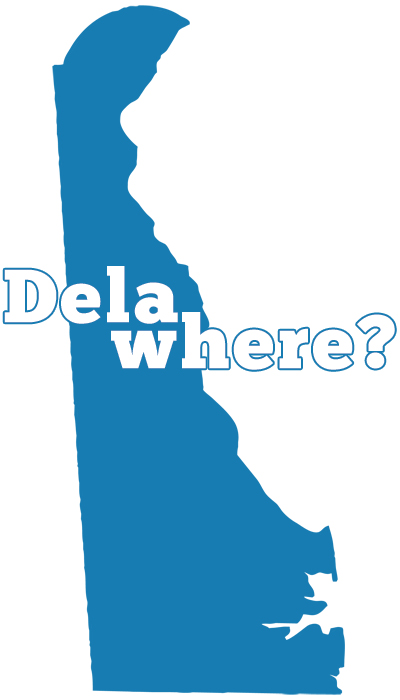Dela-Where?
It seems you've stumbled upon a place that does not exist in The First State.
Or, the web address you just entered is not a functioning page on our web server. Hopefully, the links below may be of help:

In order to make our beaches accessible to all visitors, Delaware State Parks offers beach wheelchairs which are available from 8:00 a.m. until sunset, all year. Wheelchairs are available at no charge, on a first-come, first-served basis.
Park office hours are:
April 1 through October 31, daily, 8 a.m. to 4:30 p.m.
November 1 through March 31, Monday – Friday, 8 a.m. to 4 p.m.
Lifeguards are available to assist at guarded beaches from Memorial Day to Labor Day.
From Memorial Day through Labor Day, Mobi-Mats are available at the Cape Henlopen Main Beach area. Mobi-Mats enable persons using a standard wheelchair to have access to the beach. During storms, extremely high tides may require that the mats be removed until the tides return to normal levels.
Persons requiring a beach wheelchair for more than one day may be interested in renting one from Grand Central Rental to ensure availability throughout their stay. Call (302)227-7328 regarding rental prices and policies.
Must be 18 with a valid ID to rent a boat.
Anyone 12 and under must be accompanied in their boat by someone 18 or older.
| Half-Hourly Rate | Hourly Rate | Daily Rate | |
|---|---|---|---|
| Canoe | N/A | $9 | $45 |
| Pedal Boat | $7 | $11 | $55 |
| Single Kayak | N/A | $10 | $50 |
| Tandem Kayak | N/A | $12 | $60 |
| Paddle Board* | N/A | $16 | $80 |
| Pontoon Boat**, Adults | N/A | $8/person, per ride | N/A |
| Pontoon Boat**, 12 and under | N/A | $4/person, Per ride | N/A |
| Pontoon Boat**, Group | N/A | $65/per group | N/A |
| Rowboat | N/A | $8 | $40 |
*Available at Trap Pond and Lums Pond
**Only available at Trap Pond
IMPORTANT NOTE: Only Dogs are permitted in designated “Dog Friendly” cabins and cottages. Any reference in the Policy to a pet staying in a cottage or cabin specifically refers to dogs only.
Dogs are allowed in the following dog-friendly cabins and cottages:
Staying in a Cabin or Cottage with Your Dog:
The following pet restrictions shall apply to all areas of the park in accordance with Division of Parks and Recreation Rules and Regulations:
Please call (302) 739-9220 for more information about bringing your pet to a state park.
Horses and riders are permitted on designated roadways, trails and beaches on lands administered by the Delaware Division of Parks and Recreation.
Delaware Seashore State Park -- Towers Ocean
January 1- February 28
Park office hours are:
Trailers and tow vehicles must park in the Towers Ocean parking lot. The maintenance vehicle crossing located at the southern end of the parking lot is designated for equestrian access to the beach. Designated beach for equestrian use runs from the crossing, south to within 200 yards of the Indian River Inlet. A sign at the toe of the primary dune will designate this southern boundary. (4.6 miles)
Delaware Seashore State Park -- Keybox Road
Daily: March 1– April 30; Labor Day - December 31
Weekdays only: May 1 – Labor Day
Trailers and tow vehicles must park in the Keybox Road parking lot. The surf fishing vehicle crossing is designated for equestrian access to the beach. The designated beach for equestrian use runs from the crossing, south to within 200 yards of the Indian River Inlet. A sign at the toe of the primary dune will designate this southern boundary. (3.4 miles)
Cape Henlopen State Park
November 1 – April 30
Horseback riding is permitted on the beach only. Trailers and tow vehicles must park in either the Gordons Pond Parking lot or the Point Comfort Station Parking lot. At Gordons Pond, the surffishing vehicle crossing is designated for equestrian access to the beach. At the Point Comfort Station lot, a dune crossing is marked and designated for equestrian access to the beach. Designated beach for equestrian use runs from the oceanside of the Point of the Cape south to the Gordons Pond surffishing vehicle crossing. (4.6 miles)
Fenwick Island State Park
November 1 – April 30
Trailers and tow vehicles must park in the bathhouse parking located north of Fenwick Island. The maintenance vehicle crossing located at the southern parking area is designated for equestrian access to the beach. Designated beach for equestrian use runs from the crossing north to the park boundary near South Bethany Beach. (2.6 miles)
Or, the web address you just entered is not a functioning page on our web server. Hopefully, the links below may be of help:

